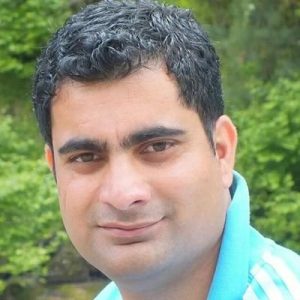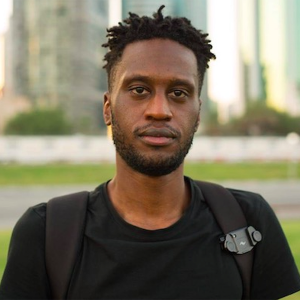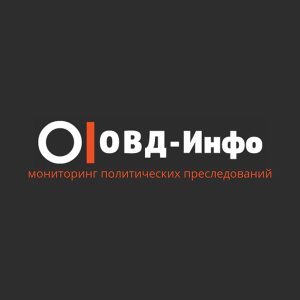Kenya: Young reporters and NGOs targeted as part of clampdown on Gen Z protests
Kenyan journalist Hanifa Adan faced harassment and attempts to censor her when she covered deadly protests and started fundraising for people injured during the unrest that have left more than 50 people dead in her country.
Budget proposals that would have resulted in the prices of basic essentials such as eggs, cooking oil, bread and nappies going up spawned countrywide weeks-long demonstrations starting in June led by the country’s Generation Z mobilising on social media. Some of the government’s tax measures that angered citizens were part of an economic programme supported by the International Monetary Fund (IMF).
In a major climbdown amidst the protests, Kenyan President William Ruto ordered significant cuts in the budget, promised to eliminate 47 state corporations with overlapping functions and reduced by 50% the number of government advisors, among many other measures. He also fired nearly all members of his cabinet, but brought back some of those he had sacked, angering protestors.
The President’s concessions failed to pacify protestors who want him to resign.
Activists blame his administration for the death of more than 50 protesters, orchestrating kidnappings, phone-tapping, disregarding court orders and violating people’s rights to assembly and expression. At one time, watchdog Netblocks said there had been an internet blackout in Kenya.
Hanifa, a journalist at Kenya media outlet Eastleigh Voice posted on X on 20 July that she was being targeted by both the government and its enemies who both had an interest in making it look as if she had been harmed by the authorities.
The reporter has been accused by government bloggers of being an economic terrorist and anarchist funded by the United States Ford Foundation. President Ruto had previously accused the foundation of destabilising Kenya but the organisation says it has a strictly non-partisan policy for all of its grant-making and did not fund or sponsor the protests.
Hanifa told Index in an interview via WhatsApp that she was no longer answering her phone because authorities were using that to track the location of targeted critics.
She said she was invited to the State House in a bid to “buy” her but when she did not turn up, the threats started, some delivered by text messages.
“The government is trying to censor me in every way possible which gets extremely exhausting but I stand relentless and fearless throughout. I have tolerated senseless propaganda and the tapping of my phone. Everyone who is in the limelight in this is being tapped, that’s how they find your location,” she said. The Nairobi-based journalist claimed that the Directorate of Criminal Investigations was abducting people and some were being tortured.
Hanifa is not the only journalist who is a victim of the government’s clampdown on freedom of expression, association and assembly. During the first month of the protests in June, the Kenya Media Sector Working Group, a coalition of key journalists and other civil society organisations including the Kenya Union of Journalists (KUJ); Kenya Editors Guild (KEG), Kenya Correspondents Association (KCA), Association of Freelance Journalists (AFJ) and the Association of Media Women in Kenya (AMWIK) released a statement saying the targeting of media practitioners by police had become an ” in-house policy” within the force. The group said targeting journalists with violence places a chilling effect on freedom of media.
Nerima Wako, the executive director of Siasa Place, an organisation which encourages young people to participate in the affairs of their country said authorities were now targeting such organisations.
She said her organisation had been sharing information on social media platforms breaking down certain elements of the constitution regarding people’s rights. To underline ongoing censorship, Nerima chose to censor herself on some aspects of the interview with Index saying answering would endanger her life. “I know surveillance is now massive. Some of my friends have been indoors for weeks, they feel unsafe. Families are worried, parents are scared,” she said.
“It takes a mental load. We are not okay all the time, especially mentally, but the spirit is still strong. We just want better for the country.” Nerima said young people in Kenya can’t continue to live in a country with rampant misuse of public resources when many don’t have access to basic needs.
She said some young people who had been reported as missing were being released by police after being held for weeks with no charge.
Nerima said many others who had engaged in protests were still missing but there were no exact numbers and people were crowd-sourcing the information.
“There’s now a database for people to insert missing people’s details,” she said.
In July, Human Rights Watch said the Kenyan government and the International Monetary Fund should work together to ensure that the implementation of the economic programme that has been blamed for some of the hardships that triggered the protests is aligned with human rights.
Human Rights Watch said the focus should be on progressive revenue generation and accountability over public funds.
The human rights watchdog said the IMF has committed $4.4 billion to Kenya, and the World Bank anticipates $12 billion in support from 2024 to 2026, yet, the programme negotiated with the IMF requires steep spending cuts and increased revenues.
It said the programme has already caused the introduction of sweeping reforms, some of which exacerbated the cost-of-living crisis.These include doubling the value-added tax on fuel without any compensatory measures and other efforts to raise revenues that contributed to financial hardship.
“The widespread outrage sparked by proposed taxes on goods like sanitary pads and cooking oil in a country where corporate tax evasion is endemic should be a wake-up call to the Kenyan government and the IMF that they cannot sacrifice rights in the name of economic recovery,” said Sarah Saadoun, senior researcher on poverty and inequality at Human Rights Watch.
The IMF was forced to respond in a statement to criticism about its role in the Kenya crisis.
The Bretton Woods institution said it was deeply concerned about the tragic events in Kenya, adding that its main goal is to help the country overcome the difficult economic challenges it faces and improve the well-being of its people.
“Kenya faces multiple challenges, including a cost-of-living crisis, climate change impacts, high poverty rates and inequality and elevated debt vulnerability,” added the IMF statement.
James WaNjeri, a Kenyan lawyer, told Index that as Kenyans face hardships, the government is uncomfortable with those who are not willing to parrot its praises.
He said the country’s constitution places people “at the centre” and the state has a duty to ensure that Kenyans have unhindered expression of rights. However, WaNjeri added, the government has been violating those rights. He said authorities had violated court orders directing police not to use teargas, live bullets and water cannons.
“Abductions and kidnappings have been carried out by police in plainclothes. illegal detentions and torture of detained Kenyans have been noted with some victims turning up dead. The government now wants to curtail the freedom of assembly and expression, with key figures being isolated for police action,” said WaNjeri.
In a speech delivered on 19 July, Ruto said Kenya’s credentials as a democratic nation have been severely tested by the protests. He said people have expressed their views on governance, development, economic management, national finances and many other aspects of national life.
“During this time, the country has engaged in a difficult public conversation, providing an opportunity to reflect on the relationship between fundamental rights and democratic freedoms, our collective aspirations for prosperity and efforts to secure opportunities for all, and the imperative to advance the security of the State,” said President Ruto.
Philip Kusia, a Kenyan governance and leadership expert, said Ruto must step down as he has mismanaged the economy, throwing millions into poverty and violating their rights.
He said people were resisting an attempt to take Kenya back to the dark era of Moism under the dictatorship of the country’s late former President Daniel Arap Moi and his KANU regime.
Moi became the country’s second president upon the death of founding leader Jomo Kenyatta in 1978. Under his 24-year autocratic rule that ended in 2002 making him the country’s longest serving president, Moi ruthlessly suppressed political opponents and his legacy was tarnished by economic stagnation and corruption.
Kusia said for wanting to take the country back to Moi’s autocratic rule, Ruto must step down.
“We have seen people who have been accused of corruption and murder cleared under extremely dubious methods and even appointed to serve in his government. The President has completely failed to manage the economy leaving millions of Kenyans in abject poverty and helplessness,” he said.
But in all this what is the endgame? Hanifa, the persecuted Eastleigh Voice journalist wrote an opinion article in her publication saying this is the question that echoes through the streets, in restaurants, and in all public spaces where the voices of the youth resonate, following the unprecedented demonstrations.
She said for years, older generations have navigated through the murky waters of Kenyan politics, often resigning themselves to the inevitabilities of corruption and inefficiency, but she points out Gen Z is no longer just an age group, but a mindset – one that refuses to accept the status quo and demands change.
She said that this movement has shown that protest is a powerful tool for change, even in the face of state resistance. Hanifa said it had also shown that persistent and unified demands for change can yield results.
Hanifa wrote: “The journey to this envisioned Kenya is fraught with challenges. The end goal is a reimagined Kenya – one that is just, equal, and thriving…The end goal is not just a dream; it is a promise of what Kenya can become.”

 Sonya Groysman is a Russian journalist and podcaster. Despite being labelled as a ‘foreign agent’ by Russian authorities she has continued to report on human rights issues and censorship in Russia.
Sonya Groysman is a Russian journalist and podcaster. Despite being labelled as a ‘foreign agent’ by Russian authorities she has continued to report on human rights issues and censorship in Russia. Bilal Hussain is a journalist based in Srinagar in Kashmir. He focuses his reporting on freedom of expression issues.
Bilal Hussain is a journalist based in Srinagar in Kashmir. He focuses his reporting on freedom of expression issues. Huang Xueqin is an activist and journalist who has worked with several domestic Chinese media outlets. She has reported extensively on the MeToo movement in China.
Huang Xueqin is an activist and journalist who has worked with several domestic Chinese media outlets. She has reported extensively on the MeToo movement in China. Venezuela Inteligente (VE inteligente) is a non-profit organisation which works to empower civil society and media organisations in Venezuela. They fight for freedom of expression and civic engagement online and offline.
Venezuela Inteligente (VE inteligente) is a non-profit organisation which works to empower civil society and media organisations in Venezuela. They fight for freedom of expression and civic engagement online and offline. Malcolm Bidali is a labour rights defender and blogger from Kenya. In 2021, Bidali was arrested after writing about the realities of being an immigrant worker in Qatar.
Malcolm Bidali is a labour rights defender and blogger from Kenya. In 2021, Bidali was arrested after writing about the realities of being an immigrant worker in Qatar. OVD-Info is an independent human rights media project documenting political persecution in Russia. With the help of a hotline, they collect information about detentions at public rallies and other cases of political pressure, publish news and coordinate legal assistance to detainees.
OVD-Info is an independent human rights media project documenting political persecution in Russia. With the help of a hotline, they collect information about detentions at public rallies and other cases of political pressure, publish news and coordinate legal assistance to detainees.